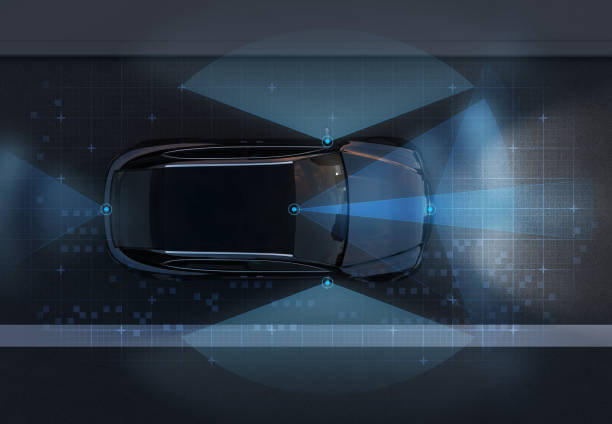Trending SUVs 2025: Models, Features, and Market Overview
The 2025 SUV lineup presents a compelling array of choices ranging from electric and hybrid innovations to performance-driven and luxury-focused models. Enhanced safety features and cutting-edge technology cater to varied consumer preferences, while embracing sustainability and efficiency. With diverse rankings and evaluations, prospective buyers can navigate this evolving landscape to find SUVs that best suit their needs and lifestyles.

The sport utility vehicle segment has transformed dramatically over the past decade, and 2025 represents a pivotal year for the industry. Modern SUVs now encompass everything from compact crossovers designed for urban commuting to full-size vehicles capable of serious off-road adventures. This evolution reflects changing consumer preferences, environmental considerations, and technological advancements that continue to reshape automotive design.
What Features Should You Prioritize in 2025 SUV Models?
When evaluating current SUV options, several key features have emerged as essential considerations. Advanced driver assistance systems now come standard across most segments, including adaptive cruise control, lane-keeping assist, and automatic emergency braking. Infotainment systems have evolved to support wireless smartphone integration, over-the-air updates, and voice-activated controls that minimize driver distraction.
Interior space optimization has also improved significantly, with manufacturers focusing on flexible seating arrangements and cargo management solutions. Many models now offer sliding second-row seats, fold-flat configurations, and modular storage systems that adapt to various lifestyle needs.
Which Electric and Hybrid SUVs Are Making Headlines?
The electrification trend has accelerated considerably, with numerous manufacturers launching dedicated electric SUV platforms. Tesla continues to lead with the Model Y, while traditional automakers like Ford with the Mustang Mach-E and Volkswagen with the ID.4 have gained substantial market share. Hybrid options from Toyota, Honda, and Lexus provide stepping stones for consumers transitioning from conventional powertrains.
Battery technology improvements have addressed previous range concerns, with many electric SUVs now offering over 300 miles per charge. Charging infrastructure expansion has also made electric SUV ownership more practical for a broader range of consumers.
How Do Performance-Focused SUVs Balance Power and Practicality?
High-performance SUVs have carved out a significant niche, combining sports car acceleration with family-friendly utility. Models like the BMW X5 M, Mercedes-AMG GLC 63, and Porsche Cayenne Turbo demonstrate that SUVs can deliver thrilling driving experiences without sacrificing everyday usability.
These vehicles typically feature advanced all-wheel-drive systems, adaptive suspension technology, and powerful turbocharged engines. Many also include selectable drive modes that adjust everything from throttle response to suspension stiffness based on driving conditions.
What Safety and Technology Innovations Define Modern SUVs?
Safety technology has reached new levels of sophistication in 2025 SUV models. Beyond traditional airbag systems, many vehicles now include 360-degree camera systems, blind-spot monitoring with rear cross-traffic alert, and pedestrian detection capabilities. Some premium models offer night vision systems and predictive safety features that can anticipate potential hazards.
Connectivity features have become equally important, with built-in Wi-Fi hotspots, smartphone app integration for remote vehicle control, and advanced navigation systems that incorporate real-time traffic and weather data.
How Do Luxury SUVs Combine Comfort with Utility?
| Model Category | Starting Price Range | Key Luxury Features | Utility Highlights |
|---|---|---|---|
| Compact Luxury SUV | $35,000 - $50,000 | Premium materials, advanced infotainment | 25-30 cubic feet cargo space |
| Mid-size Luxury SUV | $50,000 - $80,000 | Massage seats, premium audio systems | 30-40 cubic feet cargo space, towing capacity |
| Full-size Luxury SUV | $80,000 - $150,000+ | Executive seating, air suspension | 40+ cubic feet cargo space, 8,000+ lbs towing |
Luxury SUVs have mastered the art of combining opulent comfort with practical functionality. Premium materials like genuine leather, real wood trim, and brushed metal accents create sophisticated cabin environments. Advanced climate control systems with multiple zones ensure passenger comfort, while features like heated and ventilated seats extend to second and sometimes third rows.
Prices, rates, or cost estimates mentioned in this article are based on the latest available information but may change over time. Independent research is advised before making financial decisions.
Market Outlook and Consumer Trends
The SUV market shows no signs of slowing down, with analysts predicting continued growth across all segments. Consumer preferences increasingly favor vehicles that offer versatility without compromising on technology or efficiency. The shift toward electrification is expected to accelerate, driven by improving battery technology, expanding charging networks, and evolving regulatory requirements.
Manufacturers are responding by investing heavily in SUV development, with many brands planning to electrify their entire SUV lineups within the next decade. This transformation promises to deliver even more innovative features and capabilities while addressing environmental concerns that have historically been associated with larger vehicles.
The 2025 SUV landscape represents a mature market that successfully balances diverse consumer needs with advancing technology. Whether prioritizing efficiency, performance, luxury, or utility, today’s SUV buyers have access to more sophisticated and capable vehicles than ever before.




